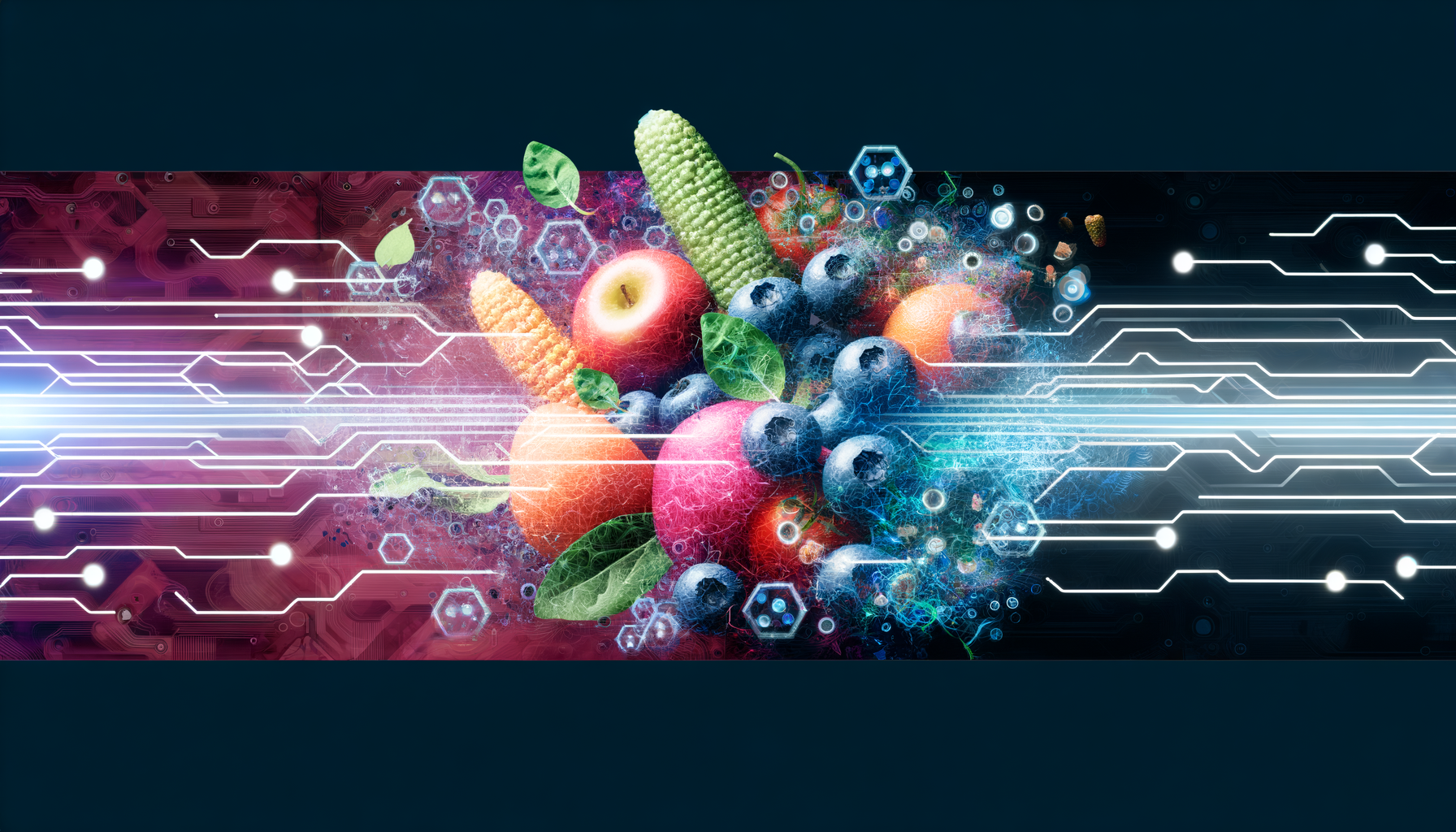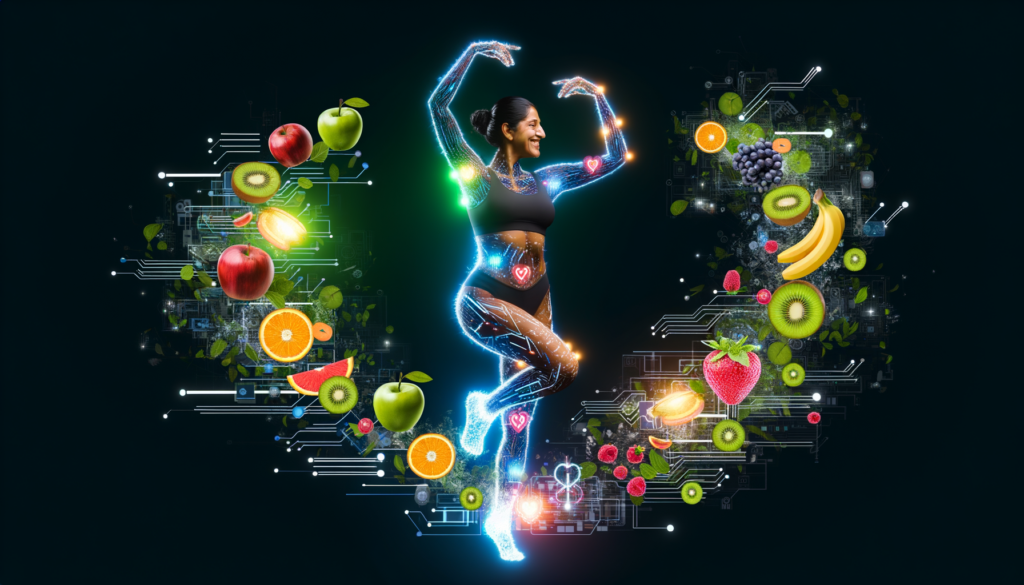The Revolution of AI and Machine Learning in Personalized Nutrition
In recent years, the integration of artificial intelligence (AI) and machine learning (ML) in the field of nutrition has transformed how individuals manage their dietary habits and health goals. This technological advancement has made personalized nutrition more accessible, efficient, and effective.
How AI and Machine Learning Work in Nutrition
AI-powered nutritionists, often in the form of websites or apps, leverage machine learning to help users improve their eating habits, tailor meal plans, and create recipes that align with personal preferences and health objectives. These tools can generate recipes that cater to dietary restrictions and optimize the use of available ingredients, all with just a simple user input.
For instance, platforms like Calorie Calculator Cloud use AI to analyze users’ current health data and goals to create customized nutrition guidance. These systems can track caloric intake, monitor dietary goals, and even help users manage specific health problems such as chronic diseases.
### Data Collection and Integration
Personalized nutrition (PN) often requires the extensive collection of multimodal data, including personal user profiles, microbiome and genetic data, physical activity data, and clinical data. AI and ML technologies integrate these diverse datasets to provide accurate and personalized recommendations. However, this integration poses challenges such as the need for standardized protocols for data collection and analysis, and the requirement for larger sample sizes to avoid the “p > n” problem, where the number of predictors exceeds the sample size.
### Nutrition Recommendation Systems
AI and ML are used in various nutrition recommendation systems, including daily or weekly meal plans, recipe suggestions, and restaurant recommendations. These systems leverage AI, ML, or other computing technologies to generate personalized advice based on individual profiles, preferences, and other data. For example, recipe recommendation systems suggest personalized recipes based on user profiles, while restaurant recommendation systems recommend appropriate selections from restaurant menus.
### Case Studies and Success Stories
Several case studies and success stories highlight the effectiveness of AI in personalized nutrition. For instance, the PROTEIN AI Advisor uses a knowledge-based recommendation framework with expert-validated meals to promote healthy diets. This system has shown positive outcomes in terms of user adherence and health improvements.
Another example is the use of AI in predicting cooking parameters’ correlation with nutritional quality, which helps in optimizing meal preparation to maintain nutritional value. Such applications are crucial in addressing global nutritional security problems.
Advantages of AI in Nutrition and Health Promotion
### Easy Access to Low-Cost Solutions
Traditionally, nutrition management has been a self-directed endeavor, often hindered by busy schedules and the cost of professional consultations. AI nutritionists overcome these challenges by providing low-cost, highly efficient solutions. They automate the collection and analysis of personal health data, significantly boosting efficiency and reducing costs. This makes comprehensive nutrition knowledge and healthy eating solutions more accessible and adaptable to individual schedules.
### Personalized and Adaptive Plans
AI nutritionists can adapt diet plans and meal recommendations to accommodate individual dietary sensitivities, allergies, or health conditions. This personalization is achieved through machine learning capabilities that continuously update and refine the recommendations based on user feedback and new data.
### Behavioral Insights and Adherence
While AI tools offer numerous advantages, they also need to incorporate behavioral perspectives to promote a balanced and healthy diet effectively. Human behavioral factors, such as adherence to guidance and plans, are crucial. Strategies to enhance adherence include integrating social, cultural, culinary, economic, and environmental aspects into PN algorithms, although this adds complexity to the data analysis.
Challenges and Limitations
### Data Modeling and Privacy Concerns
Despite the benefits, AI nutritionists face several challenges. Limitations in data modeling can introduce functional biases and raise significant privacy concerns. Many AI tools currently lack the ability to forge complex interactions with users, which can lead to withdrawal from the tools.
### Precision and Accuracy
Achieving precise and accurate recommendations is challenging due to the complex interplay of multiple factors such as genetics, diet, lifestyle, and the microbiome. Combining multiple technologies and data can improve the accuracy of the system, but it also requires novel sophisticated analytical methods and computational tools.
### Reproducibility and Replicability
The reproducibility and replicability of machine learning studies in the PN context are also critical issues. Ensuring that studies can be duplicated using the same raw data and analysis files, and that similar conclusions can be drawn from new data, is essential. However, there is currently no consensus on these definitions, and the discussion is often restricted to traditional statistical methods.
Future Directions and Opportunities
### Technological Advancements
The coming years are expected to see a substantial increase in studies applying ML to PN, driven by the development of new technologies and additional progress in computing power. Institutions like the National Institutes of Health are providing strong financial support for the development of algorithms for PN.
### Multidisciplinary Approach
Future research should focus on integrating social, cultural, culinary, economic, and environmental aspects into PN algorithms. This multidisciplinary approach will enhance the acceptability and long-term compliance with PN recommendations. Additionally, addressing genetic variability and understanding how genetic variants interact with specific nutrients or dietary patterns will be crucial.
Conclusion and Next Steps
The integration of AI and ML in personalized nutrition plans has revolutionized the way individuals manage their dietary habits and health goals. While there are numerous advantages, such as easy access to low-cost solutions and personalized adaptive plans, there are also challenges to address, including data modeling biases, precision and accuracy issues, and the need for a multidisciplinary approach.
To fully leverage the potential of AI in nutrition, it is essential to continue investing in research and development. For those looking to benefit from these advancements, tools like Calorie Calculator Plans offer a practical starting point for personalized nutrition guidance.
By embracing these technologies and addressing the challenges, we can move towards a future where personalized nutrition is not just a concept but a reality for everyone, enhancing overall health outcomes and quality of life.
If you are interested in exploring how AI can optimize your diet, consider visiting Calorie Calculator Cloud to learn more about their personalized nutrition plans.








